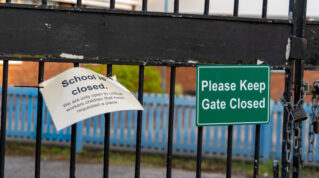Money and MAT expansion alone won’t stop vulnerable learners missing out on their next steps, writes Sam Parrett. We need to involve the experts
Over the past few months, our education group has seen the stark reality of the pandemic’s impact on disadvantaged groups. As well as worsening inequalities, Covid has revealed divisions in the education sector that make tackling the problem even harder and our experience suggests catch-up plans are missing an important piece.
Everyone understands that, despite our best efforts, school and college closures have affected academic progress as well as mental and emotional health. For young people leaving Alternative Provision at age 16, the challenges are even greater.
Already vulnerable, these children have a far greater risk of becoming NEET than their mainstream peers. And beyond the pandemic’s direct effects on their education, taking their next steps in its aftermath only adds to the difficulties.
The DfE has recognised this with the announcement of its AP transition fund. First launched last year, AP settings are being offered up to £750 for each of their year 11 students to support transition and progression. This additional funding is both necessary and welcome at a particularly difficult juncture. But money on its own is not enough.
We know from our own experience of running successful Alternative Provision that several systems must be in place to secure positive transitions for our year 11 students. As the DfE’s own research in the development of its transition fund set out, this crucially includes high-quality post-16 transition set-ups with strong employer, industry and FE partnerships.
A wider network is a fundamental ingredient of successful progression
Meanwhile, ministers have been clear about their renewed MAT expansion plans, recognising that Trusts can provide greater financial resilience, centralised decision making and strong, systemised leadership to drive school improvement.
But MATs alone don’t automatically mean effective partnerships with external organisations, employers or colleges.
Our trust is unique in that regard: seven AP and special schools and one mainstream form part of our FE college-led education group. This FE-MAT structure facilitates better transition with established progression pathways and close working relationships between school and college staff.
We have a 14-16 provision based in the college, offering young people in one of our boroughs the opportunity to study a vocational subject two days a week while continuing to attend their mainstream school for the other three.
From college tours to guaranteed interviews and confidence-building sessions with college mentors, year 11 pupils in our AP schools are shown the progression options on offer and supported to make the choices that are right for them.
With an FE-MAT collaboration – employer links across the group can be maximised too. Apprenticeships and other benefits are extended to our school leavers as well as our college students.
Like most other APs, our schools can decide how to use their transition funding. Many are planning to put ‘transition mentors’ in place. But while personalised support is undoubtedly valuable, a wider network is a fundamental ingredient of successful progression. And that wider network must include FE providers, who are the sector’s experts in employer engagement and partnerships.
This is true for all learners heading towards a fundamentally altered and somewhat volatile world of work. But it is especially true for AP school leavers, many of whom have additional safeguarding and learning support needs that mean ongoing care is needed to ensure they continue in their chosen routes.
This requires real understanding between institutions, with all sides committed to communicating longer-term about individual students, sharing information and supporting them and their families. This is far more likely to happen if there is a genuine link between schools and colleges, as our own experience testifies.
So while the row over catch-up funding inevitably continues, more thought must be given to how the whole system works together. MAT expansion promises to maximise available funding and increase collaboration, but it is only a partial solution.
FE providers’ expertise is the missing piece that can ensure the young people who most need it are supported to recover and thrive.
















Your thoughts